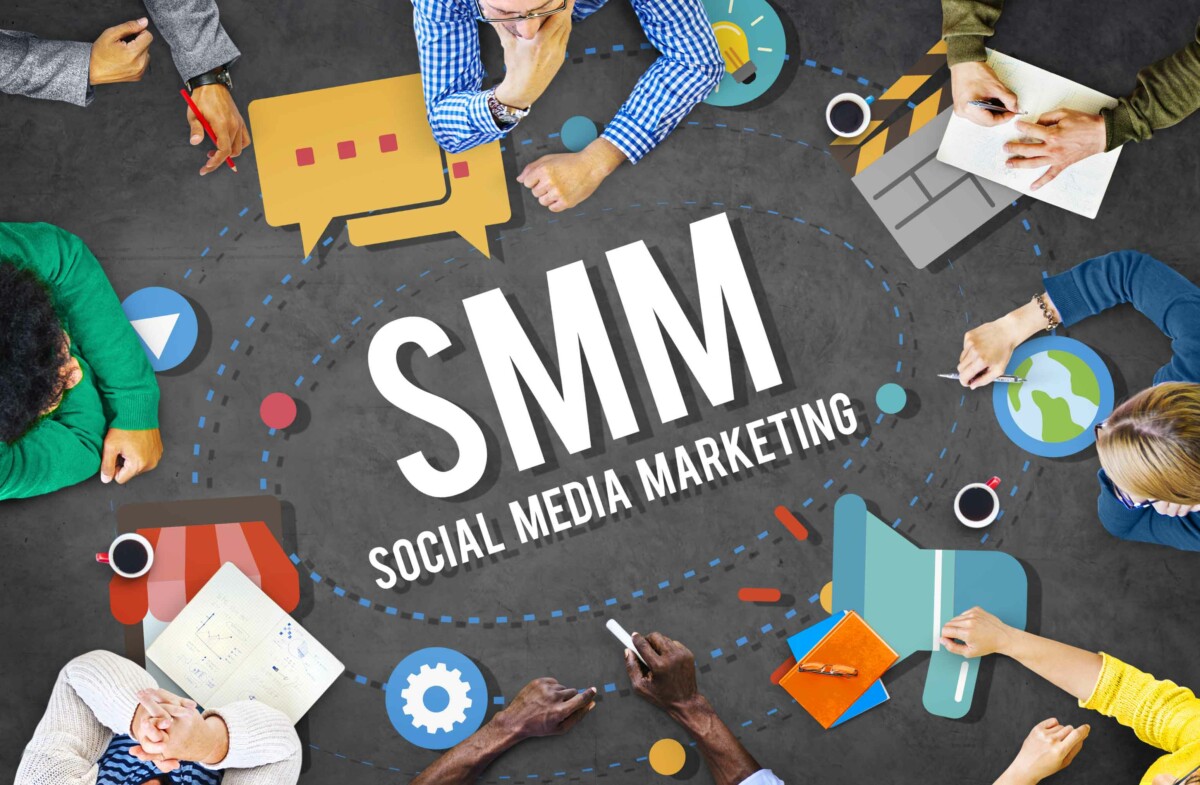In today’s digital landscape, social media has become more than just a platform for connecting with friends; it’s a powerful tool for businesses to engage with their target audience, build brand awareness, and drive sales. “Social Media Marketing: Engaging Audiences in the Digital Age” explores the nuances of leveraging social media effectively for marketing purposes, from strategy development to implementation and beyond.
The Evolution of Social Media Marketing
Social media marketing has evolved significantly since its inception. What started as a way for individuals to connect online has transformed into a robust marketing channel for businesses of all sizes. Platforms like Facebook, Instagram, Twitter, LinkedIn, and TikTok have revolutionized how brands interact with consumers, offering new avenues for customer engagement and brand promotion.
The evolution of social media marketing can be traced through several key stages:

Early Adoption
Businesses initially used social media for brand visibility and customer service.
Expansion of Platforms
As new platforms emerged, marketers diversified their strategies to reach different demographics.
Integration with Marketing Campaigns
Social media became integral to marketing campaigns, offering targeting options and measurable results.
Rise of Influencer Marketing
Influencers gained prominence, enabling brands to reach niche audiences through trusted voices.
Today, social media marketing encompasses a wide range of strategies, from organic content creation to sophisticated paid advertising campaigns and influencer partnerships.
Key Strategies for Effective Social Media Marketing
Content Strategy
A robust content strategy is the foundation of successful social media marketing. It involves creating and curating valuable, relevant content that resonates with your target audience. This can include:
Regular Posts
Consistently sharing updates, news, and insights.
Visual Content
Utilizing images, videos, and infographics to grab audience attention.
User-Generated Content
Encouraging customers to create content that showcases your brand.
Interactive Content
Polls, quizzes, and contests that engage followers.
Engagement Tactics
Building relationships and fostering loyalty hinges on engaging with your audience effectively. Effective engagement tactics include:
Responding Promptly
Addressing comments, messages, and mentions in a timely manner.
Starting Conversations
Asking questions, seeking feedback, and encouraging dialogue.
Hosting Live Sessions
Webinars, Q&A sessions, and live streams to interact in real-time.
Community Building
Creating groups or forums where customers can connect with each other.
Paid Advertising
Social media platforms provide extensive advertising capabilities to enhance your outreach and target precise demographics. Key paid advertising strategies include:
Targeted Ads
Using demographic, geographic, and behavioral data to reach your ideal audience.
Retargeting
Displaying advertisements to users who have previously engaged with your brand.
Promoted Posts
Boosting organic content to increase visibility.

Ad Formats
Video ads, carousel ads, and sponsored stories to engage users effectively.
Influencer Partnerships
Collaborating with influencers can help expand your reach and credibility. Key considerations include:
Choosing the Right Influencers
Choosing influencers whose values are in line with your brand.
Negotiating Partnerships
Agreeing on deliverables, compensation, and expectations.
Tracking Performance
Measuring the impact of influencer collaborations on brand awareness and sales.
Analytics and Optimization
Evaluating the impact of your social media efforts is crucial for optimizing your strategy.Key metrics to track include:
Engagement Rate
Engagement metrics like likes, comments, shares, and clicks on your posts.
Reach and Impressions
How many users have seen your content.
Conversion Rate
The number of users who complete desired actions, such as making a purchase or signing up.
ROI
Calculating the return on investment from your social media campaigns.
The Benefits of Social Media Marketing
Social media marketing offers several advantages for businesses:
Increased Brand Awareness
Increase your audience reach and boost brand visibility.
Improved Customer Engagement
Interact directly with customers and build relationships.
Targeted Advertising
Reach specific demographics with precision targeting options.
Cost-Effective
Social media marketing tends to be more cost-effective compared to traditional advertising methods.
Measurable Results
Track performance metrics to optimize campaigns and maximize ROI.
Implementing a Social Media Marketing Strategy
Setting Goals
Define clear objectives for your social media marketing efforts, such as increasing brand awareness, driving website traffic, or generating leads.
Choosing Platforms
Select social media platforms based on your target audience demographics, content types, and business objectives.
Creating Compelling Content
Develop a content calendar with diverse content types and themes to keep your audience engaged and informed.
Building a Community
Foster a sense of community by encouraging interaction, responding to comments, and creating spaces for discussion.
Measuring Success
Regularly analyze key metrics to evaluate the performance of your social media campaigns and make data-driven decisions.
Common Challenges in Social Media Marketing and How to Overcome Them
Content Overload
Cut through the noise by focusing on quality over quantity and creating content that adds value to your audience.
Algorithm Changes
Stay informed about platform updates and adjust your strategy accordingly to maintain visibility.
Crisis Management
Handle negative feedback or PR crises swiftly and transparently to maintain trust and reputation.
ROI Measurement
Use analytics tools to track performance metrics and attribute outcomes to specific social media efforts.
Future Trends in Social Media Marketing
Social media marketing is poised to evolve further with emerging trends such as:
Augmented Reality (AR) and Virtual Reality (VR): Enhanced immersive experiences for users.
Ephemeral Content
Temporary content like stories that encourage immediate engagement.
Social Commerce
Direct purchasing through social media platforms.
AI and Chatbots
Automation for customer service and personalized interactions.
Video Content Dominance
Continued growth of video as a preferred content format.

Conclusion
Social media marketing continues to be a powerful tool for businesses to connect with their audience, build brand loyalty, and drive growth. By implementing a well-defined strategy that includes content creation, engagement tactics, paid advertising, and analytics, businesses can maximize their impact on social media platforms. As technology and consumer behaviors evolve, staying agile and adaptable will be key to leveraging social media effectively in the digital age.
FAQ
What is social media marketing?
Social media marketing involves using social media platforms to promote products or services, engage with customers, and build brand awareness.
How can businesses benefit from social media marketing?
Businesses can benefit from social media marketing by increasing brand visibility, engaging directly with customers, targeting specific demographics, and measuring campaign performance.
Which social media platforms are best for marketing?
The best platforms for social media marketing depend on your target audience demographics and business objectives. Popular options include Facebook, Instagram, Twitter, LinkedIn, and TikTok.
How can I measure the success of my social media marketing efforts?
Success can be measured through metrics such as engagement rate, reach, conversion rate, and ROI. Use analytics tools provided by social media platforms to track performance.
What are some common mistakes in social media marketing?
Common mistakes include inconsistent posting, ignoring audience feedback, not optimizing content for each platform, and neglecting to analyze campaign performance.
What is the future of social media marketing?
The future of social media marketing lies in emerging trends like augmented reality, social commerce, AI-driven automation, and continued growth in video content consumption.
This comprehensive article covers the essentials of social media marketing, from its evolution and strategies to benefits, implementation tips, challenges, future trends, and more. It is crafted to be informative, engaging, SEO-friendly, and ready for use in Google Docs.
 Daily Blogger News Stay updated with the latest trends and insights. Your reliable source for daily updates and information.
Daily Blogger News Stay updated with the latest trends and insights. Your reliable source for daily updates and information.







